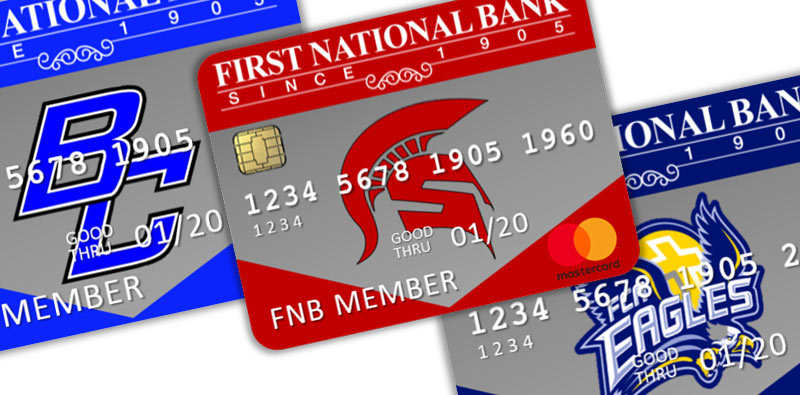-01.png)
Frequently Asked Questions
Q: What’s the projected time for processing and closing a mortgage loan?
A: The amount of time varies from mortgage to mortgage. This matter should be discussed with your loan officer during your first meeting. We will work closely with you and all involved to determine your closing date and time.
A: The amount of time varies from mortgage to mortgage. This matter should be discussed with your loan officer during your first meeting. We will work closely with you and all involved to determine your closing date and time.
Q: Is there anything I can do to ensure a smooth process and transaction of my mortgage?
A: Be sure to provide us with any requested documentation, and be sure to notify your loan officer should any of your qualification information change.
A: Be sure to provide us with any requested documentation, and be sure to notify your loan officer should any of your qualification information change.
Q: Is there a difference between pre-approval and pre-qualification?
A: The lender’s decision to fund your loan after a thorough review of your completed loan application and any supporting documents you provide them with is pre-approval. The lender’s opinion of your capability to obtain the loan is pre-qualification.
A: The lender’s decision to fund your loan after a thorough review of your completed loan application and any supporting documents you provide them with is pre-approval. The lender’s opinion of your capability to obtain the loan is pre-qualification.
Q: What is the determining factor when it comes to my interest on my loan?
A: There are various economic indicators that affect mortgage rates. Normally, your interest rate can be locked in for a specified time, such as 30-60 days, during the time of the application process. You should consult with your loan officer to decide when to lock in on your loan rate.
A: There are various economic indicators that affect mortgage rates. Normally, your interest rate can be locked in for a specified time, such as 30-60 days, during the time of the application process. You should consult with your loan officer to decide when to lock in on your loan rate.
Q: How frequently do rates change?
A: Mortgage rates change every day, sometimes more than once! Your rate is not locked until you instruct your loan officer to do so. Discuss with your loan officer to determine the best time to lock in the best loan rate for you. Usually, a change in prime does not affect mortgage rates.
A: Mortgage rates change every day, sometimes more than once! Your rate is not locked until you instruct your loan officer to do so. Discuss with your loan officer to determine the best time to lock in the best loan rate for you. Usually, a change in prime does not affect mortgage rates.
Q: What is a discount point?
A: A discount point is the cost associated with buying down your interest rate. A point is equal to one percent, 1%, of your loan amount. These points are paid at the time of closing.
A: A discount point is the cost associated with buying down your interest rate. A point is equal to one percent, 1%, of your loan amount. These points are paid at the time of closing.
Q: What is a credit score?
A: A credit score gives your loan officer a summation of your individual credit history. Higher credit scores are a good indication to the loan officer that you are willing and able to repay the money that they are lending to you. A lower score may be an indication that you have several delinquencies, such as a high balance to available credit, bankruptcy or foreclosure.
A: A credit score gives your loan officer a summation of your individual credit history. Higher credit scores are a good indication to the loan officer that you are willing and able to repay the money that they are lending to you. A lower score may be an indication that you have several delinquencies, such as a high balance to available credit, bankruptcy or foreclosure.
Q: What is an escrow account and am I required to have one?
A: An escrow account is established by the lender and is used at closing to disburse taxes and insurance on your behalf. The lender will then use this account to make payments for you when they come due. On government loans it is required that you establish an escrow account. The only way to waive this requirement is if you have a loan to value ratio of 80% or less.
A: An escrow account is established by the lender and is used at closing to disburse taxes and insurance on your behalf. The lender will then use this account to make payments for you when they come due. On government loans it is required that you establish an escrow account. The only way to waive this requirement is if you have a loan to value ratio of 80% or less.
Q: Do I bring anything to closing?
A: Yes. You will need to bring adequate certified funds and proof of insurance. Your loan officer and closing attorney should provide you with the exact amount needed for closing and any further documents.
A: Yes. You will need to bring adequate certified funds and proof of insurance. Your loan officer and closing attorney should provide you with the exact amount needed for closing and any further documents.
Q: Where do I close and do I need my own attorney present?
A: Usually your closing will take place in the attorney’s office that was chosen by the borrower and/or seller. It is not necessary to have your own attorney present at closing.
A: Usually your closing will take place in the attorney’s office that was chosen by the borrower and/or seller. It is not necessary to have your own attorney present at closing.
Q: Am I required to have insurance at closing?
A: It is the borrower’s responsibility to have adequate homeowners insurance at closing. There are different kinds of policies available, including hazard insurance, flood insurance and condominium insurance.
A: It is the borrower’s responsibility to have adequate homeowners insurance at closing. There are different kinds of policies available, including hazard insurance, flood insurance and condominium insurance.


